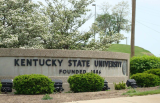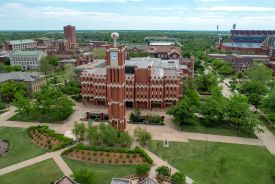Over the past two months, college students in Canada have been protesting the exorbitant and ever-increasing tuition rates of the colleges within the country.
Last night (May 23), the clashes became violent in Montreal as police in riot gear hit the protesters with pepper spray and arrested many students.
Arrests were made in Montreal, Quebec City and Sherbrooke. Police arrested 518 people overnight in Quebec alone.
Protesters threw objects at police in Montreal in what started as a peaceful march but fell apart. Police cornered the thousands of protesters and squeezed them into a tighter space.
Colleges and universities worldwide continue to raise the prices of tuition, which is making it increasingly difficult for some people to attend, and is placing students within the cycle of debt, and fueling protests.
Police declared the May 23 protest illegal because demonstrators didn't abide by the new law to provide a proper itinerary.
Quebec Premier Jean Charest announced he will not roll back the tuition hikes of C$254 (US$249) per year over seven years. Currently, Quebec has the lowest tuition rates in Canada, and they would remain among the country's lowest.
A year's tuition for a university undergraduate in Quebec is $2,519, less than half the national average of $5,366, according to Statistics Canada.
The conflict has caused considerable upheaval in the French-speaking province known for having the country's most contentious protests.
Voting results on Quebec's tentative agreement on increasing tuition stand at 3,200 for, and 83,250 against. The results will likely prolong the ongoing crisis.
That's the tally after two days of voting at the beginning of May in a negotiation between the provincial government and student groups.
The accord hinges on the creation of a provisional council-made up of students, university and junior college representatives, union officials, business leaders, government figures and a chairperson-that would review spending by universities, and use the savings it finds to reduce administrative fees that students pay on top of their tuition fees.
So the agreement still includes a tuition increase of about $250 a year, but aims to offset that by reducing ancillary fees students are obliged to pay.
So far, students at only two schools have supported the agreement: Junior colleges in Gaspesie (600 students) and Rimouski (2,600 students).
Source: Huffington Post; Canada.com
© 2025 University Herald, All rights reserved. Do not reproduce without permission.








